Maryam A. Purvis
Impact of meta-roles on the evolution of organisational institutions
Aug 07, 2020
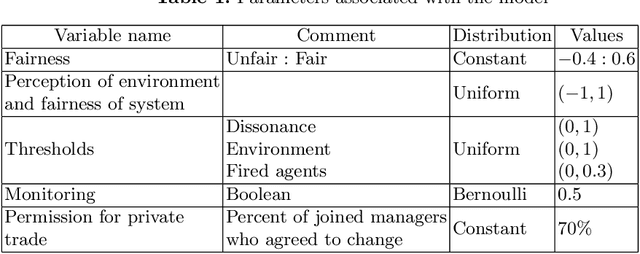
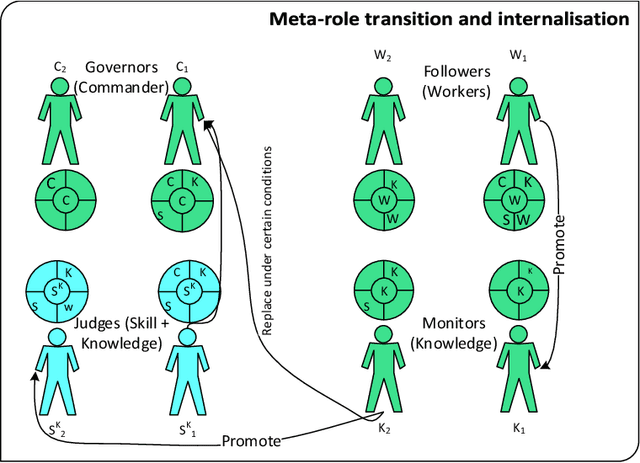

Abstract:This paper investigates the impact of changes in agents' beliefs coupled with dynamics in agents' meta-roles on the evolution of institutions. The study embeds agents' meta-roles in the BDI architecture. In this context, the study scrutinises the impact of cognitive dissonance in agents due to unfairness of institutions. To showcase our model, two historical long-distance trading societies, namely Armenian merchants of New-Julfa and the English East India Company are simulated. Results show how change in roles of agents coupled with specific institutional characteristics leads to changes of the rules in the system.
Impact of different belief facets on agents' decision -- a refined cognitive architecture
Apr 24, 2020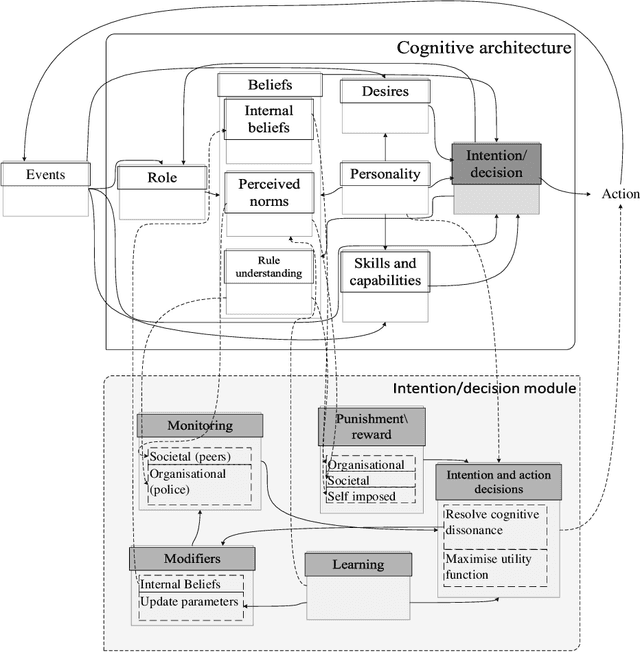
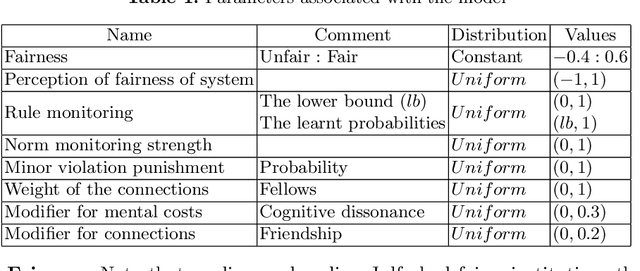

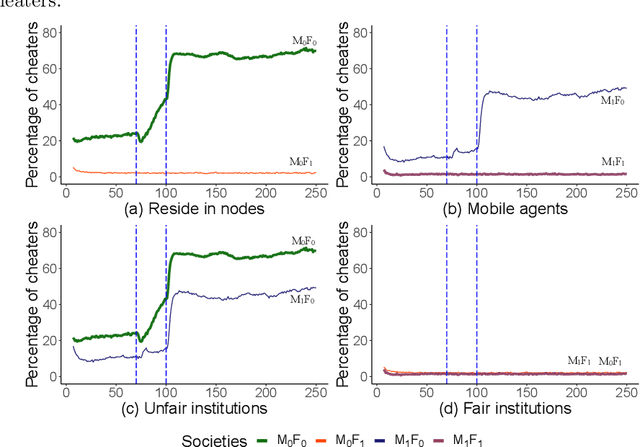
Abstract:This paper presents a conceptual refinement of agent cognitive architecture inspired from the beliefs-desires-intentions (BDI) and the theory of planned behaviour (TPB) models, with an emphasis on different belief facets. This enables us to investigate the impact of personality and the way that an agent weights its internal beliefs and social sanctions on an agent's actions. The study also uses the concept of cognitive dissonance associated with the fairness of institutions to investigate the agents' behaviour. To showcase our model, we simulate two historical long-distance trading societies, namely Armenian merchants of New-Julfa and the English East India Company. The results demonstrate the importance of internal beliefs of agents as a pivotal aspect for following institutional rules.
 Add to Chrome
Add to Chrome Add to Firefox
Add to Firefox Add to Edge
Add to Edge